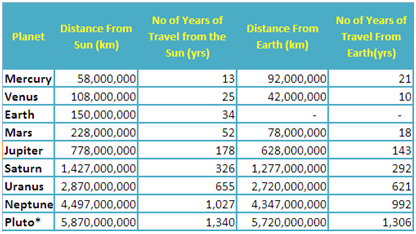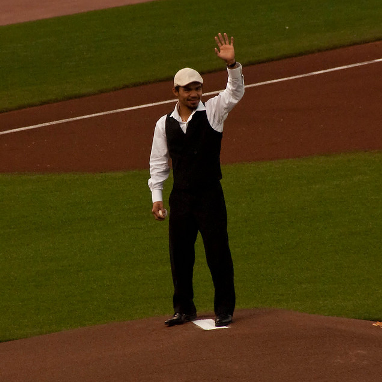Light Year and the Mathematics of the Stars
Last week, we have talked about large numbers and one million. In this post, we will talk about some of the practical uses of large numbers.
One of the uses of large numbers is to measure long distances; for instance, distance between celestial objects. Shown below is a table of the distances of the planets from the sun and from earth rounded off to the nearest thousand kilometers. Giving a speed of a commercial airline (approximately 500 kilometers per hour), a trip from Earth to Venus will require us 10 years of travel while traveling to Pluto will require us 1,306 years. Shocked?

*By the way, Pluto has recently been demoted. Recent updates made it clear that it does not qualify being one of the planets. » Read more

